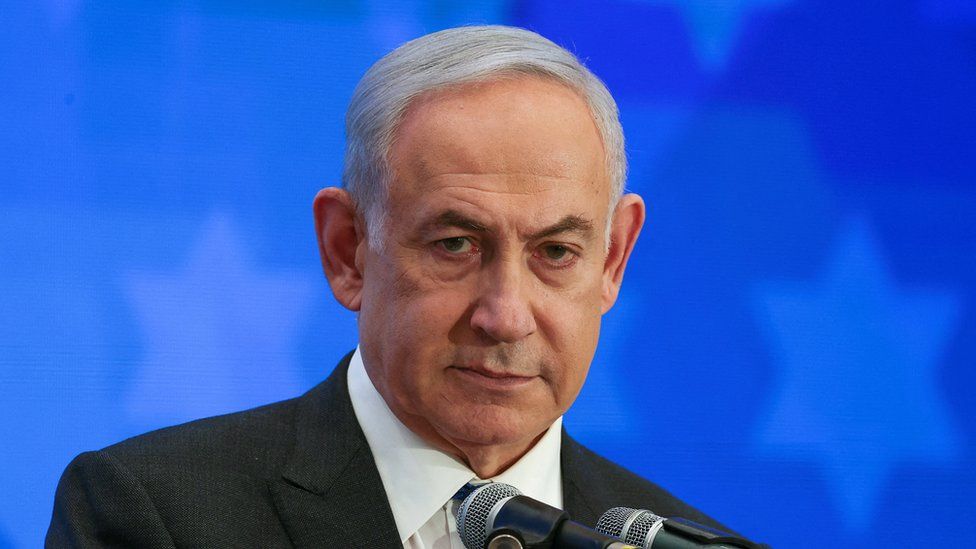ARTICLE AD BOX
 Image source, Reuters
Image source, Reuters
Israel's Prime Minister Benjamin Netanyahu is said to be meeting with top officials over a possible Iran attack
By Kathryn Armstrong
BBC News
Israel's prime minister is to meet top officials to prepare for a possible attack by Iran, local media report.
Tensions are high over the possibility that Tehran will retaliate for an air strike that killed senior Iranian commanders nearly two weeks ago.
Several countries have now warned their citizens about travelling in both countries.
US officials have told CBS News, the BBC's US partner, that a major attack on Israel could happen imminently.
Prime Minister Benjamin Netanyahu is expected to meet members of his war cabinet, including Defence Minister Yoav Gallant and opposition figure Benny Gantz.
One US official CBS spoke to warned Iran could use more than 100 drones, dozens of cruise missiles and possibly ballistic missiles.
These would reportedly be aimed at military targets in Israel in a strike the size of which Israel would find "challenging" to defend against.
The official added that there was still a possibility Iran could decide to hold back.
A second source also confirmed to CBS that an Iranian action could happen on Friday.
They put the number of cruise missiles that could be used by Iran to attack Israel at 150 and said the planned scale of the attack had grown in recent days - reportedly to make sure that at least some of the drones and missiles would get through Israeli air defence systems.
The comments come after the US earlier warned that such a strike was imminent.
The mounting tensions have led counties including the US, UK, India and Australia to issue travel warnings.
Image source, Reuters
Image caption,Israel has not claimed responsibility for the strike next to the Iranian embassy in Damascus, but is widely considered to have carried it out
Thirteen people were killed in the 1 April missile strike on an Iranian consulate building next to its embassy in the Syrian capital Damascus.
They included senior Iranian military leaders, among them Brig-Gen Mohammad Reza Zahedi, a senior commander of Iran's elite Quds Force in Syria and Lebanon.
Israel has not claimed responsibility for the attack, but is widely considered to have carried it out.
The current war was sparked when Hamas attacked Israeli communities near the Gaza Strip, killing about 1,200 people, most of them civilians, and taking more than 250 hostage. Israel says that of 130 hostages still in Gaza, at least 34 are dead.
More than 33,600 Gazans, the majority of them civilians, have been killed during Israel's retaliatory campaign in Gaza, the Hamas-run health ministry says.
The conflict has also seen Israel trade almost daily fire across its northern border with the Iran-backed Lebanese group Hezbollah, while Iran-backed groups in Iraq and Yemen have attempted to hit Israeli territory as well as US bases in Iraq and Syria.
Yemen's Houthi movement has also attacked shipping in the Red Sea, sinking at least one ship and prompting the US and UK to launch missiles against the group.

 1 year ago
38
1 year ago
38








 English (US) ·
English (US) ·